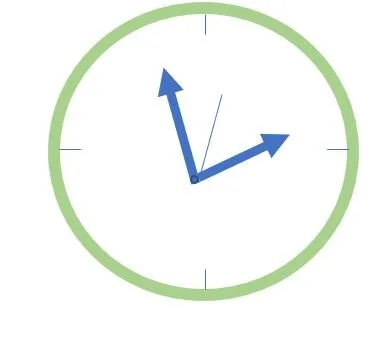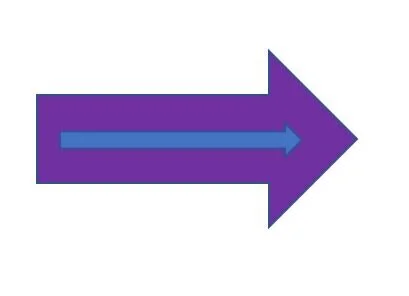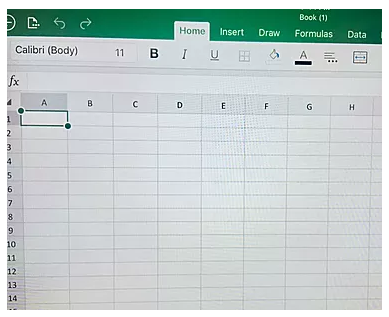When was the last time you talk to your nonprofit’s database administrator?
Dear Diary,
Misconceptions, a lack of communication and workstreams, and a minimized/invalidated scope of work, are issues experienced by many in the nonprofit sector. In this Diary entry, I want to focus on the database manager/administrator who has a breadth of tasks and responsibilities that many hardly realize, or acknowledge.
But I believe in hearing stories and experiences, and we all know a database administrator – pulling your reports, maintaining your CRM, cleaning up donor records, and doing so much more. There is much to learn from their experiences, specifically how to have and maintain an efficient, respectful and effective relationship, and stream of communication.
Today, I want to thank Dee for sharing her experiences and amazing tips. Dee is a database professional, working for a nonprofit in New York City as a Salesforce Administrator. In addition to maintaining the CRM, she is also responsible for the organization’s other internal business systems - including the email marketing and analytics platforms. When Dee’s not at work, you can find her sharing data tips on her personal blog, Employed for Good.
How do you explain your role, and what have been some responses or misconceptions about your role?
The way I see it, my role is to help my organization leverage all of our database systems. That means making sure staff have the data they need to do their jobs, safeguarding the integrity of our data, and identifying process enhancements that help everyone work as efficiently as possible.
Although my title and department are new this year, I’ve technically managed the database for over two years. So, one misconception I’ve had to tackle is this idea from staff that their requests are a “favor”, or somehow a burden on my time.
Not only is this untrue, but like I tell them, those requests are key to my team’s success! If there are ways to optimize our systems further or make data more accessible, then that is feedback I want (and need) to hear.
What do you believe qualifies a great path for communication between a database admin and a database user?
I’d say early, regular and candid communication is key. It’s mildly horrifying as an admin when you learn that someone is spending hours on a task, that you know can be automated in a matter of minutes! Even worse is learning when someone isn’t doing something they should, because of mis-information about how the system works.
Communication often resolves the issue. But had I been involved from the start, or checked in with by that team more frequently, those issues might have been avoided.
On the candid piece, I should note that trust matters here. Admins need to trust that users will give them honest feedback when something is (or isn’t) working. And users need to see their admins as partners, who will act on that feedback. So, the onus really falls on both sides.
And how can both parties help each other make the database a better, and an even more useful platform?
Users, don’t be afraid to ask questions. There are no stupid questions when it comes to your database - especially if the answer prevents a costly data mistake! Yes, your admin will appreciate it if you check the user manual (and any other documentation) for the answer first. But when in doubt, definitely ask.
For admins, it can be easy to give a yes-or-no answer when someone makes a request. That comes with having the best technical understanding of what is possible. But to do better, admins should be willing to sit with users and discuss the motivation behind those requests. The added context can open up other avenues and solutions, ones that wouldn’t have come up otherwise.
And finally, one thing both users and admins can do, is seek to understand each other. In some cases, the database is the only bridge between an admin and the rest of staff. In order to build a system that truly serves the organization, admins need to have a handle on how different teams operate. Similarly, users with a better database understanding can be more proactive at recognizing which parts of their work might benefit from admin intervention.
What tips could you provide on database use? And what are some major “please do not” that you can share?
● Log in and use it, even if it seems difficult. Databases are designed to be complex, and no one is born knowing how to use one. (I saw my first Salesforce report in 2014 and thought “that will never be my job”.) You’ll get your sea legs in time, but only if you try.
● Be mindful when entering and updating records. Your database is only as useful as the data that goes into it. To be on the right side of your system, you’ll want to do some due diligence: check for existing records before adding new ones, enter names and addresses with the proper punctuation, resolve duplicates as you find them, and so on.
● Treat the system like it’s yours. In many ways, it is: it’s there to further your work. Find ways to take more ownership: whether that’s adding customizations, bookmarking reports, becoming a power user, or developing best practices & procedures for your team.
As for what you should not do...
● Don’t wait to tell your admin if you make a mistake. Let them know asap, and provide as much detail as you can. Admins understand that mistakes happen! And some are much easier to correct if they’re brought to our attention quickly enough.
● Don’t be cavalier about your database. Databases often hold personal, sensitive information about program recipients, donors, staff, and other constituents. While you shouldn’t be paralyzed with fear over security breaches, everyone should take data privacy seriously. That means not leaving yourself logged in on public devices, not sharing your credentials with others, and being extra sensitive about who/how you share any reports or data exports.
Again, thank you Dee for enhancing our understanding of how we should be communicating with our database admins and utilizing their time and purpose.
When was the last time you talk to your database professional?
Until next time, August 15th!




